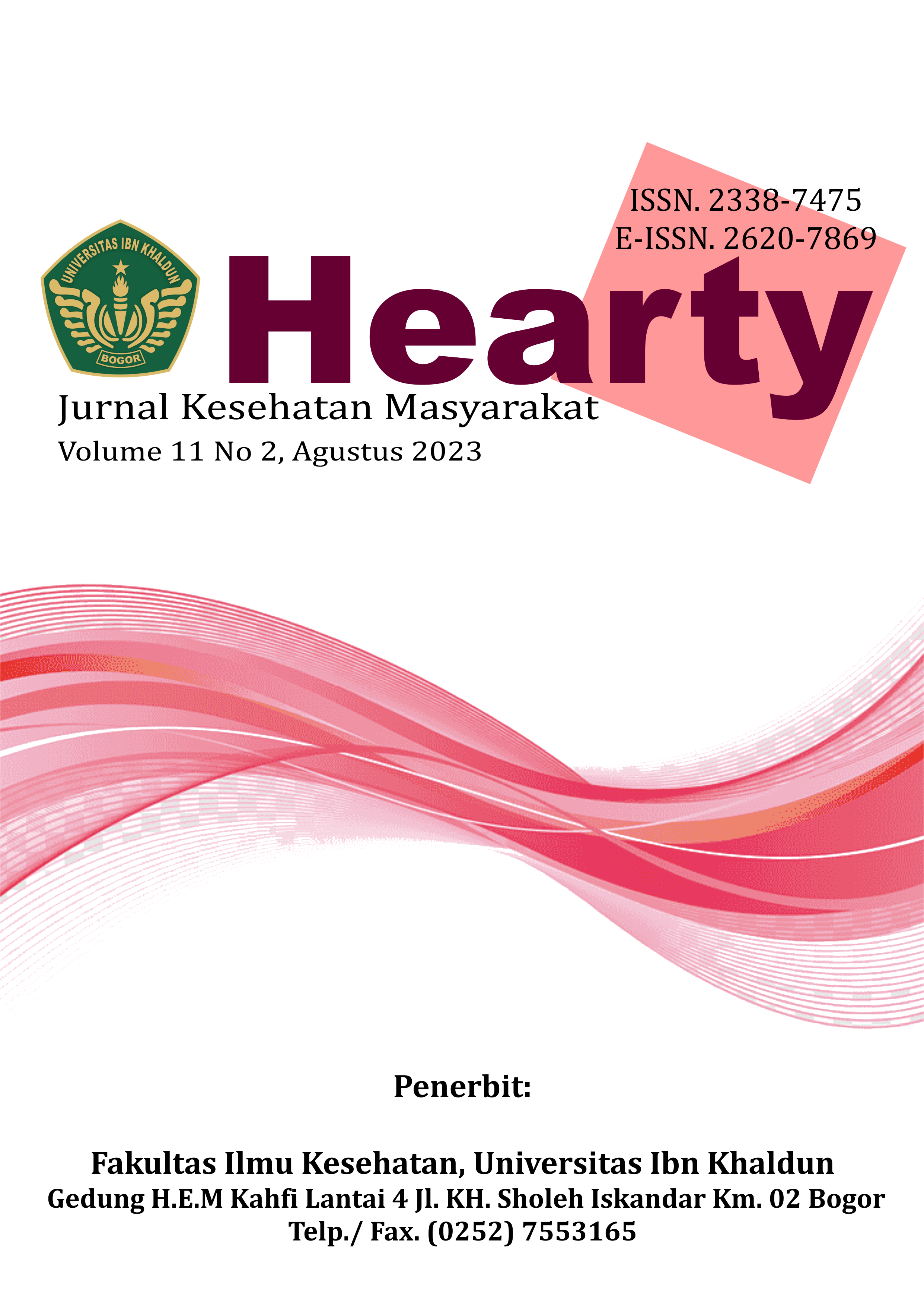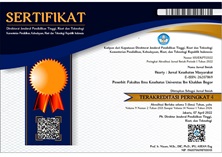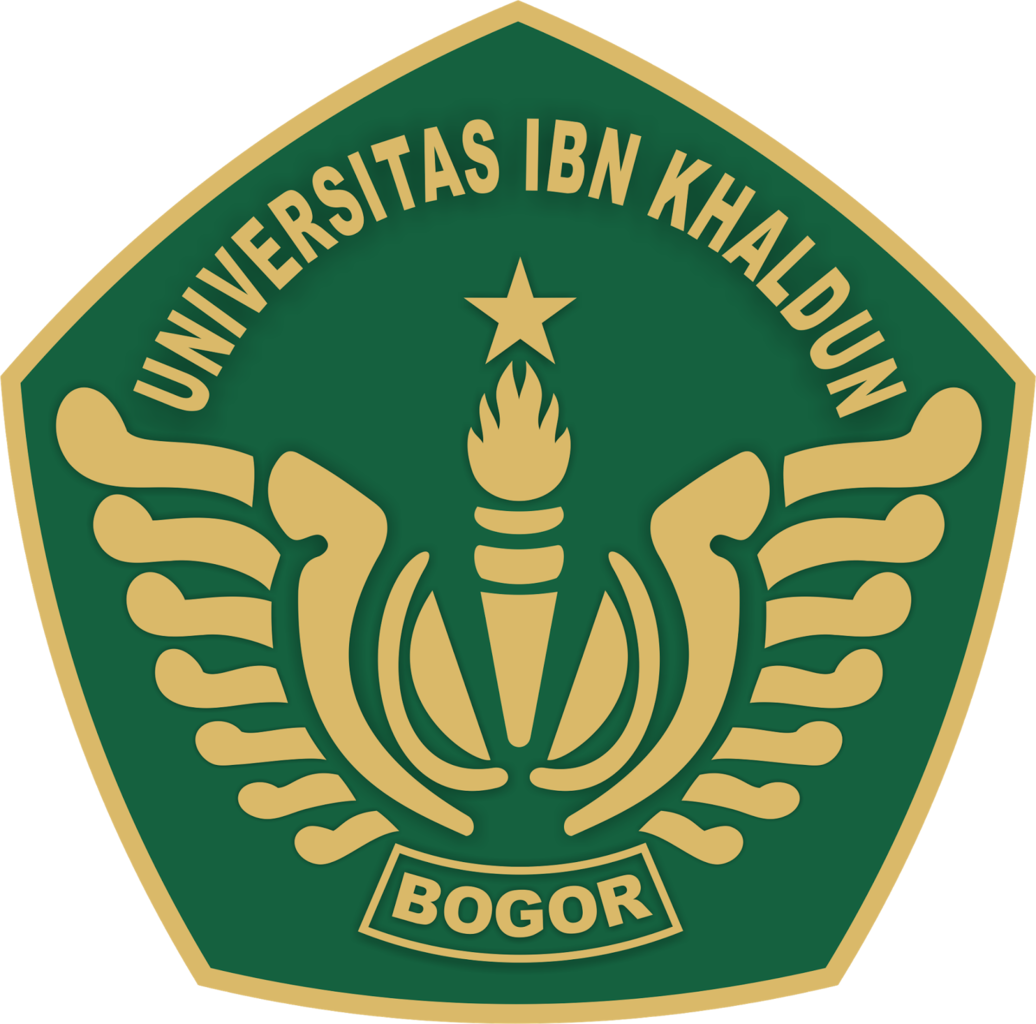PENANGANAN PANDEMI COVID-19 DI KOREA SELATAN A SYSTEMATIC LITERATURE REVIEW
DOI:
https://doi.org/10.32832/hearty.v11i2.8819Kata Kunci:
COVID-19, Korea Selatan, Upaya, Kesehatan, Respon MasyarakatAbstrak
Penelitian ini bertujuan untuk mengetahui respon Korea Selatan terhadap pandemi COVID-19. Metode yang digunakan dalam penelitian ini adalah tinjauan literatur sistematis dengan menggunakan 244 artikel ilmiah yang bersumber dari database Scopus. Tinjau artikel menggunakan aplikasi Vosviewer. Hasil penelitian ini mengungkapkan bahwa Korea Selatan telah belajar dari pengalamannya dalam menghadapi pandemi MERS dan tidak dianggap kewalahan dalam menghadapi pandemi virus COVID-19. Berbagai upaya telah dilakukan Korea Selatan untuk mengatasi pandemi virus COVID-19. Mulai dari kebijakan memakai masker dan membatasi interaksi sosial secara fisik, mengubah aktivitas yang semula dilakukan secara offline menjadi aktivitas online. Korea Selatan juga meluncurkan perangkat lunak untuk melacak tingkat perjalanan dan perkembangan virus, yang berisi nomor badan kesehatan darurat. Korea Selatan juga telah merancang vaksin untuk mengatasi gejala COVID-19 sesuai dengan kondisi tubuh masyarakat di negaranya. menggunakan kondisi lingkungan, cuaca, dan kebiasaan masyarakat Korea sebagai pertimbangan dalam proses pemberian dosis komposisi vaksin. Korea Selatan juga telah merancang vaksin untuk mengatasi gejala COVID-19 sesuai dengan kondisi tubuh masyarakat di negaranya.Referensi
Barceló, J., Sheen, G. C.-H., Tung, H. H., & Wu, W.-C. (2022). Vaccine nationalism among the public: A cross-country experimental evidence of own-country bias towards COVID-19 vaccination. Social Science and Medicine, 310. https://doi.org/10.1016/j.socscimed.2022.115278
Choi, J., Lee, S., & Jamal, T. (2021). Smart Korea: Governance for smart justice during a global pandemic. Journal of Sustainable Tourism, 29(2–3), 540–549. https://doi.org/10.1080/09669582.2020.1777143
Chung, E., & Yi, J. (2021). Pandemic Priorities: The Impact of South Korea's COVID-19 Policies on Vulnerable Populations. International Journal of Public Administration, 44(11–12), 1028–1038. https://doi.org/10.1080/01900692.2021.1922440
Chung, S., & Lee, S. (2021). South Korea: Democracy, innovation, and surveillance. In Covid-19 in Asia: Law and Policy Contexts (hal. 239–250). Oxford University Press. https://doi.org/10.1093/oso/9780197553831.003.0016
Im, T., & Campbell, J. W. (2020). Coordination, incentives, and persuasion: South korea's comprehensive approach to covid-19 containment*. Korean Journal of Policy Studies, 35(3), 119–139.
Jae Moon, M., Suzuki, K., Park, T. I., & Sakuwa, K. (2021). A comparative study of COVID-19 responses in South Korea and Japan: political nexus triad and policy responses. International Review of Administrative Sciences, 87(3), 651–671. https://doi.org/10.1177/0020852321997552
Jee, Y. (2020). Interim evaluation of South Korea's response to covid-19 and preparation for a post-covid-19 world in public health. Korean Journal of Policy Studies, 35(3), 169–190. https://www.scopus.com/inward/record.uri?eid=2-s2.0-85101971437&partnerID=40&md5=0f89cf08d0e9d0a631b3f42eaccddc06
Jeong, B. G., & Kim, S.-J. (2021). The Government and Civil Society Collaboration against COVID-19 in South Korea: A Single or Multiple Actor Play? Nonprofit Policy Forum, 12(1), 165–187. https://doi.org/10.1515/npf-2020-0051
Jiao, J., Lee, H. K., & Choi, S. J. (2022). Impacts of COVID-19 on bike-sharing usages in Seoul, South Korea. Cities, 130. https://doi.org/10.1016/j.cities.2022.103849
Kang, D., & Park, M. J. (2022). Interaction and online courses for satisfactory university learning during the COVID-19 pandemic. International Journal of Management Education, 20(3). https://doi.org/10.1016/j.ijme.2022.100678
Kim, P. S. (2021). South Korea's fast response to coronavirus disease: implications on public policy and public management theory. Public Management Review, 23(12), 1736–1747. https://doi.org/10.1080/14719037.2020.1766266
Kim, Y. (2022). Tracking bodies in question: telecom companies, mobile data, and surveillance platforms in South Korea's epidemic governance. Information Communication and Society, 25(12), 1717–1734. https://doi.org/10.1080/1369118X.2021.1883704
Kim, Y., & Jeong, Y. A. (2022). The role of local governments in South Korea's COVID-19 response. Public Administration and Development. https://doi.org/10.1002/pad.1986
Lee, D., Heo, K., & Seo, Y. (2020). COVID-19 in South Korea: Lessons for developing countries. World Development, 135. https://doi.org/10.1016/j.worlddev.2020.105057
Moon, M. J. (2020). Fighting COVID-19 with Agility, Transparency, and Participation: Wicked Policy Problems and New Governance Challenges. Public Administration Review, 80(4), 651–656. https://doi.org/10.1111/puar.13214
Oh, S.-Y. (2022). From a ‘super spreader of MERS‘ to a ‘super stopper‘ of COVID-19: Explaining the Evolution of South Korea's Effective Crisis Management System. Journal of Asian Public Policy, 15(2), 250–265. https://doi.org/10.1080/17516234.2020.1863540
Park, J., & Chung, E. (2021). Learning from past pandemic governance: Early response and Public-Private Partnerships in testing of COVID-19 in South Korea. World Development, 137. https://doi.org/10.1016/j.worlddev.2020.105198
Park, S., & Fowler, L. (2021). Political and administrative decentralization and responses to COVID-19: comparison of the United States and South Korea. International Journal of Organization Theory and Behavior, 24(4), 289–299. https://doi.org/10.1108/IJOTB-02-2021-0022
Shaw, R., Kim, Y.-K., & Hua, J. (2020). Governance, technology and citizen behavior in pandemic: Lessons from COVID-19 in East Asia. Progress in Disaster Science, 6. https://doi.org/10.1016/j.pdisas.2020.100090
Sonn, J. W., & Lee, J. K. (2020). The smart city as time-space cartographer in COVID-19 control: the South Korean strategy and democratic control of surveillance technology. Eurasian Geography and Economics, 61(4–5), 482–492. https://doi.org/10.1080/15387216.2020.1768423
Yang, C., Zhang, S., Lu, S., Yang, J., Cheng, Y., Liu, Y., Zhao, L., Gong, J., & Xu, J. (2021). All five COVID-19 outbreaks during epidemic period of 2020/2021 in China were instigated by asymptomatic or pre-symptomatic individuals. Journal of Biosafety and Biosecurity, 3(1), 35–40. https://doi.org/10.1016/j.jobb.2021.04.001
Yu, S., Yoo, E. J., & Kim, S. (2022). The effect of trust in government on elections during the COVID-19 pandemic in South Korea. Asian Politics and Policy, 14(2), 175–198. https://doi.org/10.1111/aspp.12631
























